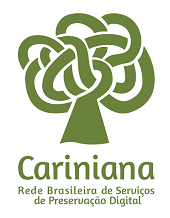The senses in the teaching of history
DOI:
https://doi.org/10.5433/2238-3018.2011v17n2p383Keywords:
Senses, History Teaching, Interaction, ChildrenAbstract
This article is an exposition of the practical application of the propose of working historical themes in the classroom using the senses as the main technique for evoking the curiosity and knowledge, but without reducing that same curiosity and knowledge only to the senses. Having as theoretical influences Illich's teories about schools, Correa's workshops, Ginzburg's micro-history and Peter Burke's cultural history, our goal is a class in which students participate not only through the teacher's questions, but also in the very development of themes, and which materializes the knowledge about ancient societies, the lives of people who died millenniums ago, without forgetting the importance of the historical themes for our society and the importance of both individual life and the political, economic, cultural and social estructures of society. Therefore, we want a fun, interesting, funny class without forgetting the history and without underestimating the knowledge of children.References
BARTHON, K. Qual a utilidade da história para crianças? Contributos do ensino de história para a cidadania. In BARCA, I. (Org.). Para uma educação histórica de qualidade. Actas das IV Jornadas Internacionais de Educação Histórica.Universidade do Minho, 2004. p. 11-22.
BURKE, Peter. O que é História Cultural?. Rio de Janeiro: Jorge Zahar Ed., 2008.
CAINELLI, M. Educação histórica: perspectivas de aprendizagem da história no ensino fundamental. Educar. Curitiba, Especial, 2006, p. 57-72.
CORRÊA, G. C. Oficina: novos territórios em educação. In LUENGO, J. M. (Org.) Pedagogia Libertária: Experiências Hoje. São Paulo: Editora Imaginário, 2000.
ELIADE, Mi. Mito e realidade. São Paulo: Perspectiva, 2006.
ESPADA LIMA, H. A Micro-história italiana: escalas, indícios e singularidades. Rio de Janeiro: Civilização Brasileira, 2006.
ILLICH, I. Sociedade sem escolas. Petrópolis: Editora Vozes, 1973.
KI-ZERBO, J. (org.). História Geral da África. Brasília: UNESCO, Secad/MEC, UFSCar, 2010.
KORNIS, M. A. História e Cinema: um debate metodológico. Estudos Históricos. Rio de Janeiro, vol. 5, n. 10, 1992, p. 237-250.
PEREIRA, J. S. Reconhecendo ou construindo uma polaridade étnicoidentitária? Desafios do ensino de história no imediato contexto pós-Lei nº 10.639. Estudos Históricos. Rio de Janeiro, v. 21, n. 41, 2008, p. 21-43.
PERRY, Marvin. Civilização Ocidental: uma história concisa. São Paulo: Martins Fontes, 2002.
SCHMIDT, M. A.; CAINELLI, M. Ensinar história. São Paulo: Scipione, 2004.
SLENES, R. Na senzala, uma flor: esperanças e recordações da família escrava, Brasil, Sudeste, século XIX. Rio de Janeiro: Nova Fronteira, 1999
Downloads
Published
How to Cite
Issue
Section
License
A revista se reserva os direitos autorais sobre as contribuições publicadas, sem retribuição material para o autor, podendo disponibilizá-las on-line no modo Open Access, mediante sistema próprio ou de outros bancos de dados; também poderá efetuar, nos originais, alterações de ordem normativa, ortográfica e gramatical, com o intuito de manter o padrão culto da língua. As opiniões emitidas pelos autores são de sua exclusiva responsabilidade.














